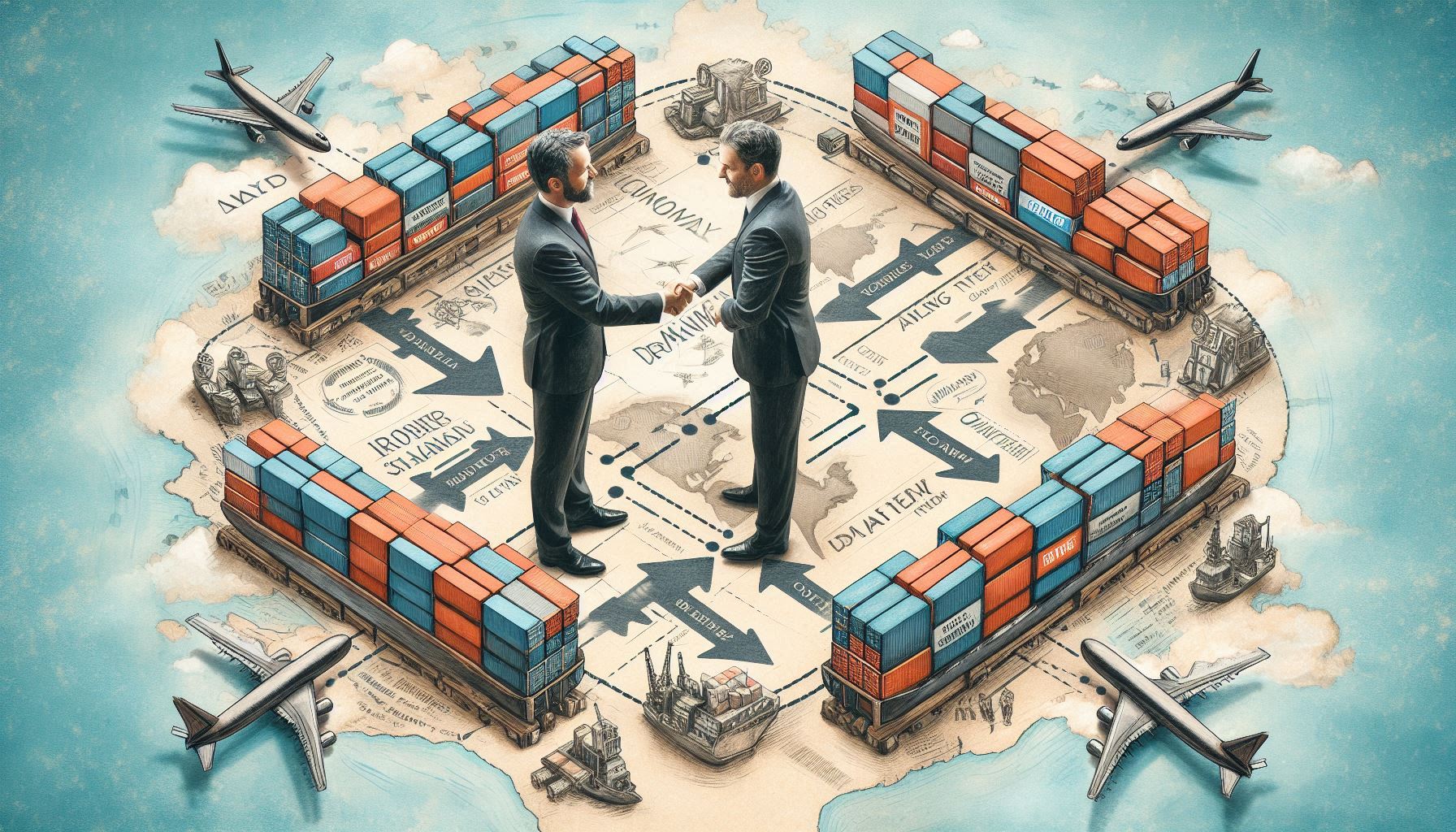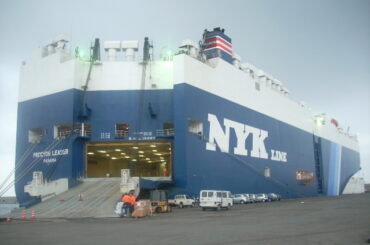As you consider the role of a shipper, it’s crucial to understand the diverse nature of this position and the impact it has on the movement of goods. From managing intricate logistics to fostering relationships with carriers, the responsibilities of a shipper are multifaceted. But what truly defines a shipper goes beyond the surface level tasks; it explores the strategic decisions and collaborative efforts that shape the efficiency of supply chains. So, who exactly embodies the essence of a shipper, and how do they navigate the complexities of modern-day transportation?
Definition of a Shipper
When considering the definition of a shipper, it’s important to understand that a shipper refers to an individual or entity that’s responsible for arranging the transportation of goods or cargo from one point to another.
Shipper terminology encompasses various roles within the shipping industry. Examples of shippers include manufacturers, wholesalers, retailers, and even individuals who need to transport goods.
As a shipper, your primary responsibility is to guarantee that the goods you’re shipping reach their destination safely and on time. This involves coordinating with carriers, negotiating rates, preparing shipping documentation, and tracking shipments to ensure smooth transit.
Understanding the intricacies of supply chain management, logistics, and transportation regulations is essential for effective shipping operations.
Moreover, as a shipper, you play an important role in the global economy by facilitating the movement of goods across different regions.
Types of Shippers
Understanding the various categories of shippers sheds light on the diverse roles individuals and entities play in the transportation of goods. Shippers can be broadly categorized into two main groups: commercial shippers and residential shippers.
Commercial shippers are businesses that transport goods in large quantities, often working directly with freight carriers to move their products efficiently. On the other hand, residential shippers are individuals or households that require shipping services for personal items or smaller quantities of goods.
Commercial shippers typically utilize various shipping methods such as truckload, less-than-truckload (LTL), rail, air freight, or ocean freight, depending on the volume and urgency of their shipments. They often have established relationships with freight carriers to guarantee reliable and cost-effective transportation of their products.
Residential shippers, on the other hand, may opt for shipping methods like parcel delivery services for smaller packages or freight services for larger items.
Understanding these distinctions can help shippers make informed decisions regarding the most suitable shipping methods and carriers for their specific needs.
Responsibilities of a Shipper
To fulfill their role effectively, shippers must adhere to a set of essential responsibilities that guarantee the smooth and efficient transportation of goods. One significant responsibility is managing shipper documentation. This includes accurately preparing all necessary paperwork such as bills of lading, invoices, and export/import documentation.
Timely and accurate completion of these documents is critical to ascertain compliance with regulations and to prevent delays in the transportation process.
Additionally, effective shipper communication is key to successful shipping operations. Shippers must maintain constant communication with carriers, suppliers, and other stakeholders involved in the transportation process.
Clear and timely communication regarding shipment details, changes in scheduling, or any unforeseen issues is significant to prevent disruptions and ascertain the goods reach their destination on time.
Shipper’s Role in Logistics
The shipper’s role in logistics is pivotal to the seamless movement of goods from point A to point B. Effective communication is a cornerstone of successful shipping operations. As a shipper, your ability to communicate clearly and promptly with carriers, suppliers, and customers is essential.
Utilizing advanced technologies can streamline communication processes, enhance visibility, and improve overall efficiency. Integrating transportation management systems, electronic data interchange, and real-time tracking tools can empower shippers to make informed decisions and respond swiftly to any potential disruptions in the supply chain.
Shipper technology plays a significant role in optimizing logistics operations. By leveraging transportation management software, route optimization tools, and analytics platforms, shippers can enhance shipment visibility, track performance metrics, and identify areas for improvement.
Embracing innovative technologies enables shippers to adapt to changing market dynamics, meet evolving customer demands, and drive operational excellence. In today’s fast-paced logistics environment, staying ahead of the curve through effective communication and technology integration is key to achieving operational success.
Importance of Shippers in Supply Chain
Shippers play an essential role in the supply chain ecosystem, acting as the linchpin that connects various stakeholders and facilitates the smooth flow of goods from origin to destination. The importance of shippers in the supply chain can’t be overstated.
Efficient shipper relationships are fundamental for ensuring timely deliveries, cost-effective transportation solutions, and overall customer satisfaction. By maintaining strong connections with carriers, suppliers, and receivers, shippers can streamline processes, optimize routes, and minimize disruptions in the supply chain.
Additionally, shipper technology plays an important role in enhancing operational efficiency and visibility. Advanced tracking systems, transportation management software, and communication tools enable shippers to monitor shipments in real-time, proactively address issues, and provide accurate updates to all parties involved.
Embracing innovative technologies not only improves decision-making but also fosters collaboration among stakeholders, leading to increased productivity and reduced lead times.
To summarize, shippers serve as the backbone of the supply chain, driving operational success through effective relationships and technology utilization.
Frequently Asked Questions
What Are the Common Challenges Faced by Shippers in the Transportation Industry?
Facing challenges in the transportation industry, you struggle with cost management, balancing expenses against service quality. Capacity planning is a constant battle, ensuring you meet demand without overcommitting resources. Adapting to market fluctuations remains a key challenge.
How Do Shippers Ensure Compliance With Shipping Regulations and Requirements?
To guarantee compliance with shipping regulations and requirements, you, as a shipper, conduct regular compliance audits and provide regulatory training to staff. This proactive approach helps mitigate risks, maintain operational efficiency, and foster a culture of adherence to industry standards.
What Technologies Are Shippers Using to Improve Their Logistics Processes?
You’re enhancing logistics processes with data analytics and supply chain optimization. By utilizing technologies like IoT, AI, and blockchain, you’re streamlining operations, improving visibility, and driving efficiency in your shipping operations.
How Do Shippers Handle Cargo Insurance and Risk Management?
When managing cargo insurance and risk, you handle cargo valuation meticulously to guarantee proper coverage. Assess risks proactively, mitigating potential losses. Utilize technology for real-time tracking. Stay informed on industry trends for effective risk management strategies.
What Are the Key Factors Influencing a Shipper’s Choice of Transportation Mode?
When considering transportation modes, shippers prioritize freight cost and delivery speed. Balancing these factors guarantees efficient operations. Analyze carrier options, leveraging negotiation skills to optimize service levels and cost-effectiveness. Stay informed on industry trends for informed decision-making.







